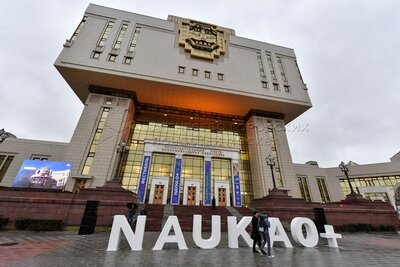The international “Science 0+” festival, dedicated to the International Year of Quantum Science and Technology, will take place in the capital from October 10 to 12.
“Moscow will host the large-scale XX International ‘Science 0+’ Festival. The main theme – ‘Your Quantum Universe’ – will be dedicated to the International Year of Quantum Science and Technology,” the announcement stated.
The festival will be held at several city venues.
“The central venues will be the Fundamental Library and the Shuvalov Building of Moscow State University. The events are designed for participants with different levels of preparation – from schoolchildren to teachers and scientists,” the department noted.
In addition, guests can expect lectures and master classes on current scientific fields – from quantum physics to artificial intelligence. As part of the festival, visitors can also attend interactive exhibitions and go on tours of scientific laboratories.
The full list of events and registration information can be found on the official festival website msk.festivalnauki.ru.
Moscow State University
Moscow State University is the oldest and largest university in Russia, founded in 1755 by the Russian Empress Elizabeth and the scientist Mikhail Lomonosov. Its iconic main building on Sparrow Hills, one of the Stalinist “Seven Sisters” skyscrapers, was completed in 1953 and remains a dominant symbol of Soviet-era architecture and educational prestige.
Fundamental Library
The Fundamental Library of the Tajik National University, founded in 1948, is the largest and oldest academic library in Tajikistan. It serves as a central hub for education and research, housing millions of items including rare manuscripts and books. The library plays a vital role in preserving the nation’s written cultural heritage.
Shuvalov Building
The Shuvalov Building is a historic neoclassical palace in St. Petersburg, Russia, originally constructed in the late 18th century. It served as the residence for prominent aristocratic families, most notably the Shuvalovs, and was a known center for high-society life and culture. Today, the building is part of St. Petersburg State University and houses its Faculty of Philosophy and Sociology.



